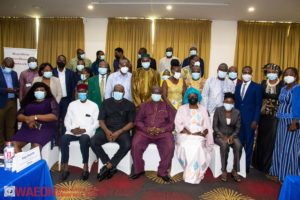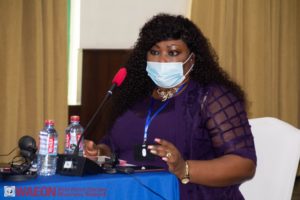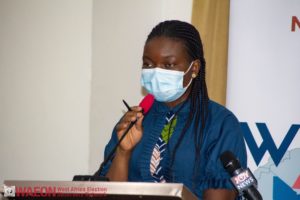
Accra, Ghana//-Members of the West African Election Observers Network (WAEON) have expressed worried over rising disinformation in the sub-region’s electoral processes.
According to them, the rising disinformation and its cousins namely misinformation and fake news could undermine democracy in the sub-region.
Disinformation which is described as false or misleading information that is spread deliberately to deceive someone, individuals or groups, is a subset of misinformation.
So misinformation is false information that is spread, regardless of whether there is intent to mislead, while fake news is purposefully crafted, sensational, emotionally charged, misleading or totally fabricated information that mimics the form of mainstream news.
Threat to democracy
Speaking at the opening of a three-day workshop on ‘Enhancing the Capacity of Domestic Election Groups to Address the Challenges of Electoral Dis/Misinformation’ held in Accra, the Head of the Electoral Assistance Division of the Economic Community of West African States (ECOWAS), Francis Gabriel Oke, admitted that, “disinformation or fake news is a threat to elections in the sub-region”.
He added that disinformation and its cousins could lead to electoral violence and other challenges if care is not taking to address them. “It also poses a great challenge to electoral integrity”.
Social media according to Mr Oke, is the driver of disinformation, misinformation and fake news in the sub-region, Africa and the rest of the world.
“Instead of using it to share their visions, plans and manifestoes to the electorate, politicians and their surrogates are using the social media to propagate disinformation, misinformation and fake news” to deceive the electorate and the general public.
To this end, “election observer groups have to make reporting cases of misinformation a central part of their election assessment methodology. This means that the prevalence of misinformation should be given greater weight in determination of the extent to which an electoral process is adjudged credible or not,” Mr Oke said.
Social media heighten disinformation, others
Presenting an overview of disinformation and misinformation and electoral integrity in Africa, the Executive Director of CDD-West Africa, Ms Idayat Hassan, noted: “Social media has helped to elevate disinformation, misinformation and fake news on the continent”.
With Africa having a youthful population, which could be translated into an electorate dominated by young people, social media would continuously provide fertile ground for perpetrators of misinformation, disinformation and fake news, she observed.
Rise to the occasion
The Director for Advocacy and Policy Engagement at the Centre for Democratic Development Ghana (CDD-Ghana), Dr Kojo Asante, who is also the Project Manager and Head of WAEON Secretariat, used the occasion to call on election observer groups to “rise to the occasion and prepare themselves to counter the challenges of new technology and new media.”
Participants of the workshop organized by the WAEON Secretariat hosted by CDD-Ghana and sponsored by the U.S-based National Endowment for Democracy (NED) were drawn from Ghana, Nigeria, Mali, Burkina Faso, Senegal, Benin, The Gambia, Guinea Bissau, Sierra Leone, Ivory Coast, and Liberia.

The workshop provided a platform for the participants to share their experiences, concerns and suggestions on ways to mitigate electoral misinformation through electoral observation among other pressing challenges.
It also sought to explore avenues for election observers and civil society to mitigate the negative risks electoral litigation poses on electoral credibility in the sub-region.
The participants in panel discussions blamed the rising disinformation, misinformation and fake news on illiteracy, ignorance and poverty.
They also blamed the politicians for preying on the vulnerability of the youth by luring them into conducting activities in misinformation, disinformation and fake news.

How to address disinformation and the two
The Chairperson of WAEON, James Lahai, called for co-operation with civil society organizations (CSOs), private sector and independent institutions to fight the disinformation, misinformation and fake news canker in the sub-region.
He further called on electoral observer groups to deploy fact-checkers as part of their election observation to verify the veracity of any information circulated on social media by political actors.
Instructively, WAEON was formed in 2010 as an independent, non-partisan, and non-religious network of election observation/monitoring citizen organizations in West Africa dedicated to the promotion of free, fair, transparent and peaceful elections in the sub-region.
The Network currently consists of 13-member organizations respectively representing Burkina Faso, Benin, Cote d’Ivoire, Gambia, Guinea, Ghana, Liberia, Mali, Niger, Nigeria, Senegal, Sierra Leone, and Togo.
The organization’s mission is to strengthen and support citizen election observer groups for effective participation in electoral and democratic processes in West Africa through support to: non-partisan citizen election observation and monitoring; electoral reform advocacy; and the exchange of best practices.
African Eye Report


